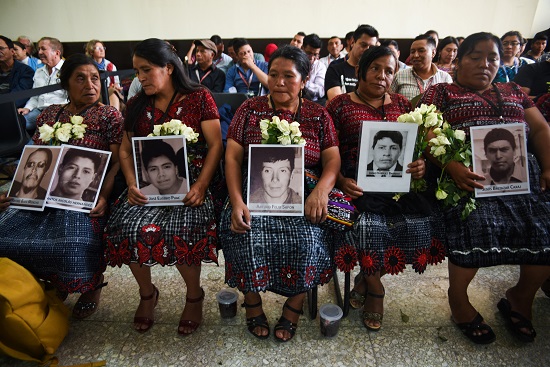Guatemala Court Convicts Seven Soldiers For 2012 Indigenous Killings
A Guatemalan court has convicted seven soldiers for their roles in the killing of six Indigenous protesters in 2012, while a colonel and another soldier were acquitted.
More than a decade later, the ruling was seen as partial justice by family members of the victims of what Guatemalans describe as the first state massacre to occur since the nation’s bloody civil war ended in the ’90s.
Report says of those convicted, six of the soldiers were found guilty of bodily injury caused in a fight while another was convicted of murder.
A judge presiding over the case ruled that the bodily injury charge was the most appropriate for the majority, as witnesses could not prove that those soldiers were the ones out of their group who killed the protestors.
They were sentenced to nearly eight years in prison while the soldier found guilty of murder was sentenced to more than nine.
Meanwhile, on October 4, 2012, hundreds of members of the Indigenous organization 48 Cantones of Totonicapan blocked a section of the Pan-American Highway, protesting high electricity costs and the closure of a teacher’s college.
Six Maya K’iche men were killed and more than 34 other protesters were injured by security forces that day, though versions of how the violence began were initially conflicting.
The government of then-President Otto Perez said that the security guard assigned to a cement truck that had been blocked by the protesters shot into the air to clear a path, angering protesters and forcing the army to “also shoot into the air” to disperse them.
However, the Indigenous group said they were shot at point-blank by soldiers.
Guatemalan prosecutors had accused Colonel Juan Chiroy of giving the order to shoot, though Chiroy denied such and was acquitted alongside another soldier after the court did not find sufficient evidence to convict them.
Waiting for the ruling outside the court in Guatemala City, several members of the 48 Cantones performed a traditional ceremony and held a Catholic mass to honor the deceased.
“May the Army never again harm our people,” read a white banner held by the group.
As part of Guatemala’s decades-long civil war, more than 200,000 Guatemalans, most of whom were Indigenous, were killed by the state.
After the conviction and sentencing was read, the leader of 48 Cantones, Rafael Zapeta, said the group “regretted prosecutors’ shoddy work” and that it would appeal.
REUTERS/Christopher Ojilere


Comments are closed.